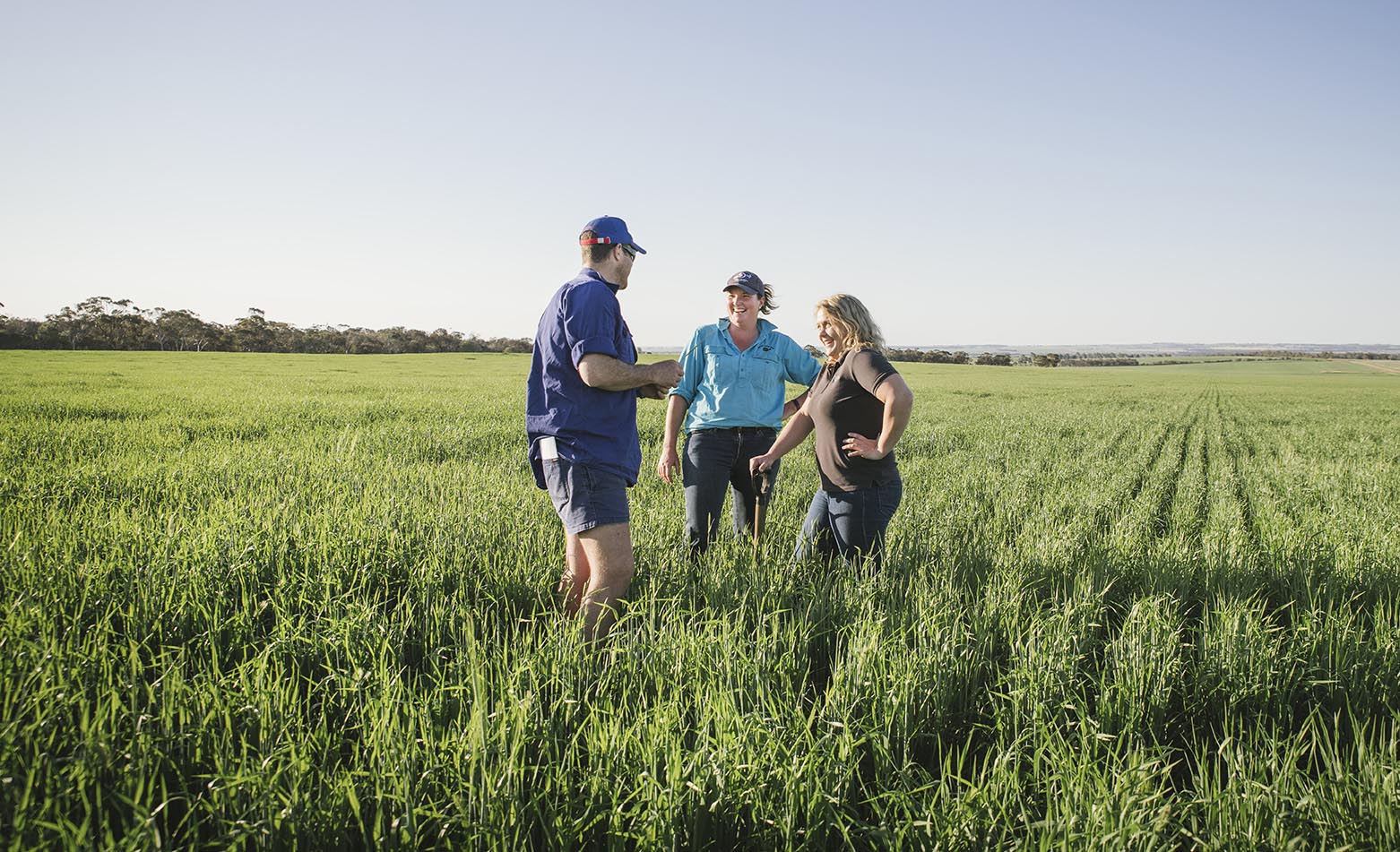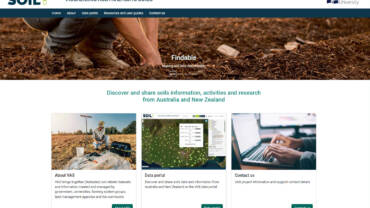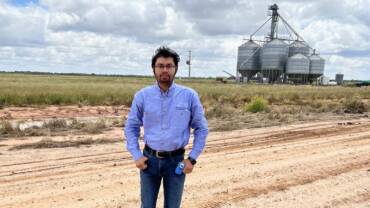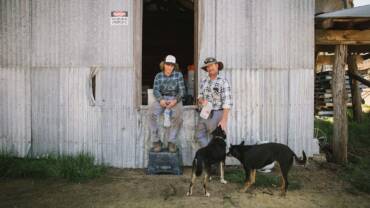Knowledge sharing for good soil stewardship
| Posted Aug 11,2023Dr Hanabeth Luke of Southern Cross University is leading the Soil CRC’s research effort to address the challenges and opportunities associated with sharing soil knowledge, with the aim of increasing farmer uptake of new research outputs.
“Effective knowledge sharing processes between farmers, scientists and key knowledge brokers is essential for enhancing soil stewardship,” Dr Luke said.
“Hundreds of millions of dollars is invested each year in agricultural science and technology, but adoption rates for many technologies are still quite low.
“For example, of six regions studied through our Soil CRC Survey Project, in only one region are more than 50% of farmers undertaking precision-farming (WA Wheatbelt). This links very closely with farmer self-assessed knowledge of how to apply these technologies,” she said.
“I’m working with Dr Penny Cooke and a multi-organisational team to understand how knowledge is shared, to increase farmer confidence to invest in new soil management approaches, practices and technologies.”
Southern Cross University is driving this research project, which involves four other universities and grower groups from four case study regions in Victoria, Western Australia, New South Wales and South Australia.
“The project is super-charging the knowledge-sharing and extension efforts of the grower groups as we work as a team to co-develop and trial a range of knowledge-sharing modes and strategies across the different case study regions,” Dr Luke explained.
“These range from digital strategies to new ways to run field days, drawing on the skills of a cross-institutional, cross-disciplinary research team to test and assess the effectiveness of these modes over time.”
This project aims to provide guidance for engagement, collaboration and knowledge-sharing efforts by the Soil CRC and its participants, towards maximum effectiveness and impact on soil health, fertility and performance.
Dr Luke’s research builds on the findings of previous Soil CRC projects, Why soil management practices are adopted, Surveying on-farm practices and Building farmer innovation capability.
Project update
Embedded in this project is an understanding that knowledge-sharing processes need to be locally relevant and related to key challenges identified by farmers.
“We’ve empowered the grower groups—AIR EP (SA), West Midlands Group (WA), Central West Farming Systems (NSW) and Birchip Cropping Group (Vic)—to take the wheel and help steer the research course,” Dr Luke said.
Of course, these are people who really value research, so the strategic priorities of each group within this project was based on data from the social benchmarking surveys and other Soil CRC research in their regions.
“The enthusiasm of the grower groups has been key to the success of this project so far. Our project team is still meeting monthly to discuss their engagement priorities and approaches, having powerful discussions about what is working and what could be improved.”
Even when some regions were hit with severe flooding last year, grower groups found ways to adjust and carry on with the research effort, such as holding an ‘Unbog Yourself’ field day in the wake of the floods. Idea sharing has been an integral element of this project.
Behind the scenes, our researchers at Murdoch University are conducting a policy review of factors constraining knowledge sharing across Australia, while Federation University is looking at digital engagement and how it is being used.
Now at the 18-month mark, the project is delivering robust and useful data. Data is collected using three key methods:
- A standardised evaluation form distributed at farming events – this uses high level questions to help assess the effectiveness of engagement strategies and likely investment/adoption that might arise from events.
- Process diaries completed by project team members when carrying out an engagement activity – the details are entered into the diary, including who was involved, what was done, who is engaging with different approaches and an analysis of the strengths, weaknesses, opportunities and threats.
- Regular project participant meetings – these are used to discuss what the grower groups are trialling, to share ideas and capture reflections.
Dr Luke said the data is showing farmers require multiple ‘touch points’ to aid knowledge sharing and adoption.
“A farmer might hear about a new practice or technology once in the newspaper or online, but that doesn’t automatically prompt action. They then need to start talking about it with other farmers and hear other opinions.
“There is a process of knowledge-sharing and demonstration that needs to happen before farmers will develop the confidence to try something new,” she said.
“This links to the findings coming out of the Soil CRC’s survey projects, which shows how our decisions are impacted by the opinions and experiences of others.”
Next steps
This research will wrap up in late 2023 and is expected to deliver a range of research outputs, including:
- a knowledge sharing guide with tips for engaging people, which includes a section on digital engagement
- recommendations for a training program
- short ‘how to’ videos from our partner grower groups
- a journal paper on project design.
Find out more
This project will feature in the Program 1 knowledge sharing panel at the 2023 Soil CRC Participants Conference in Launceston later this month.
Hanabeth Luke will be joined by Soil CRC Soil Knowledge Broker Felicity Harrop to discuss how we can better share knowledge to improve adoption of new soil management approaches, practices and technologies. Registrations close 21 August.





